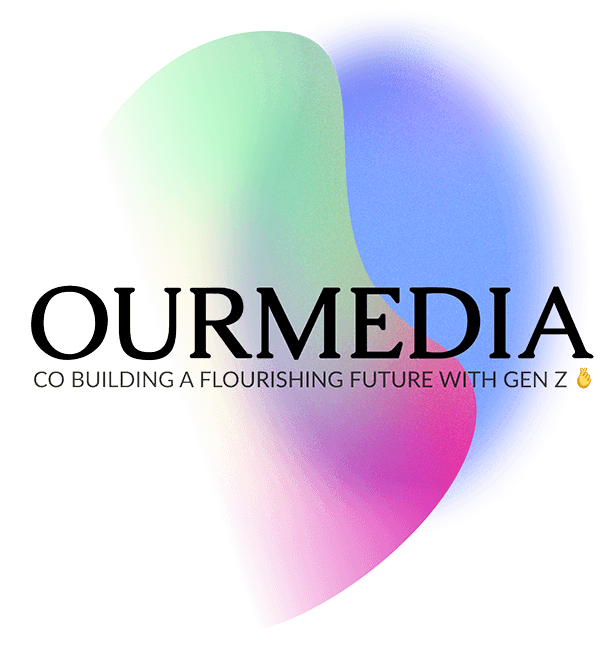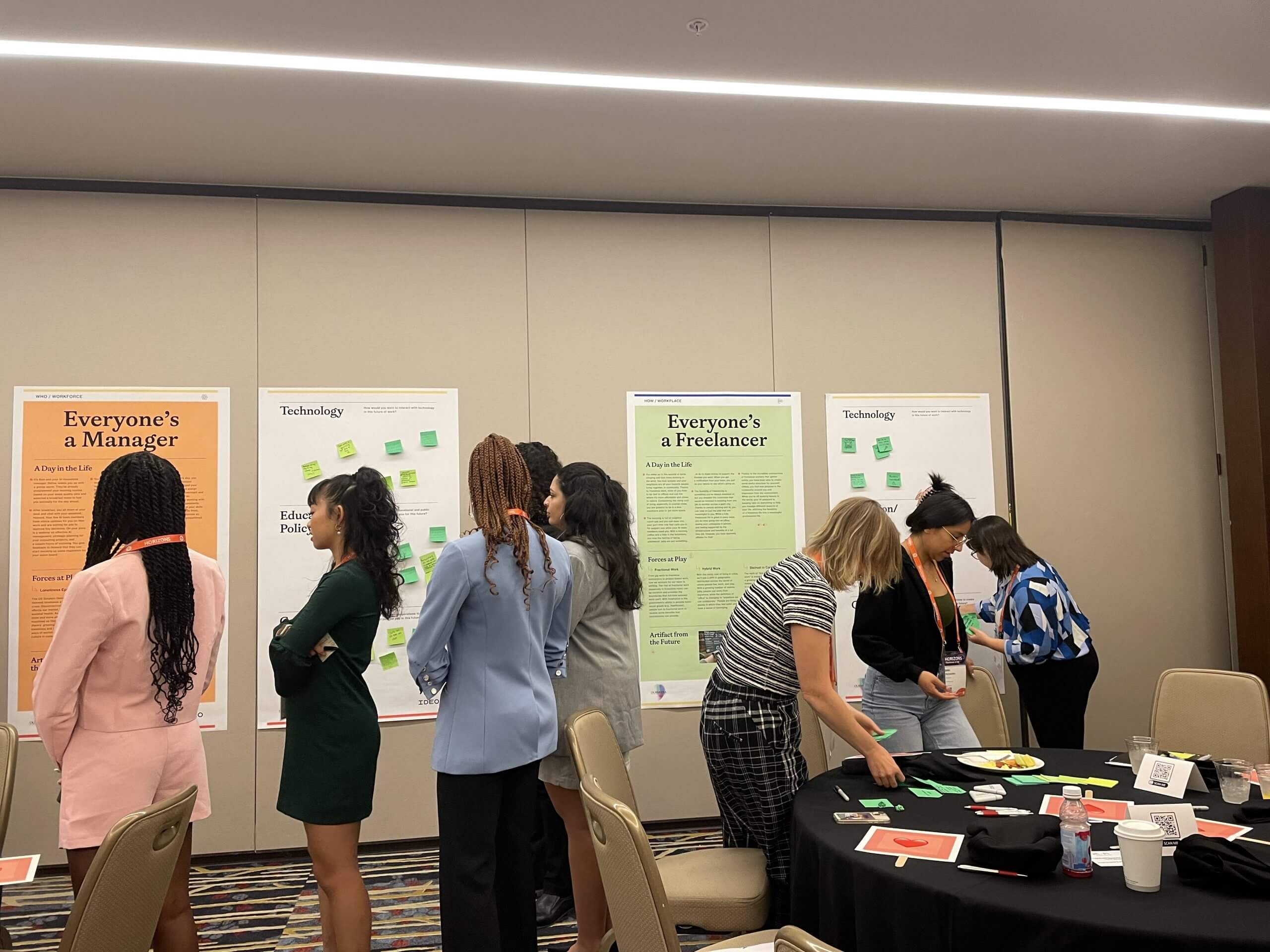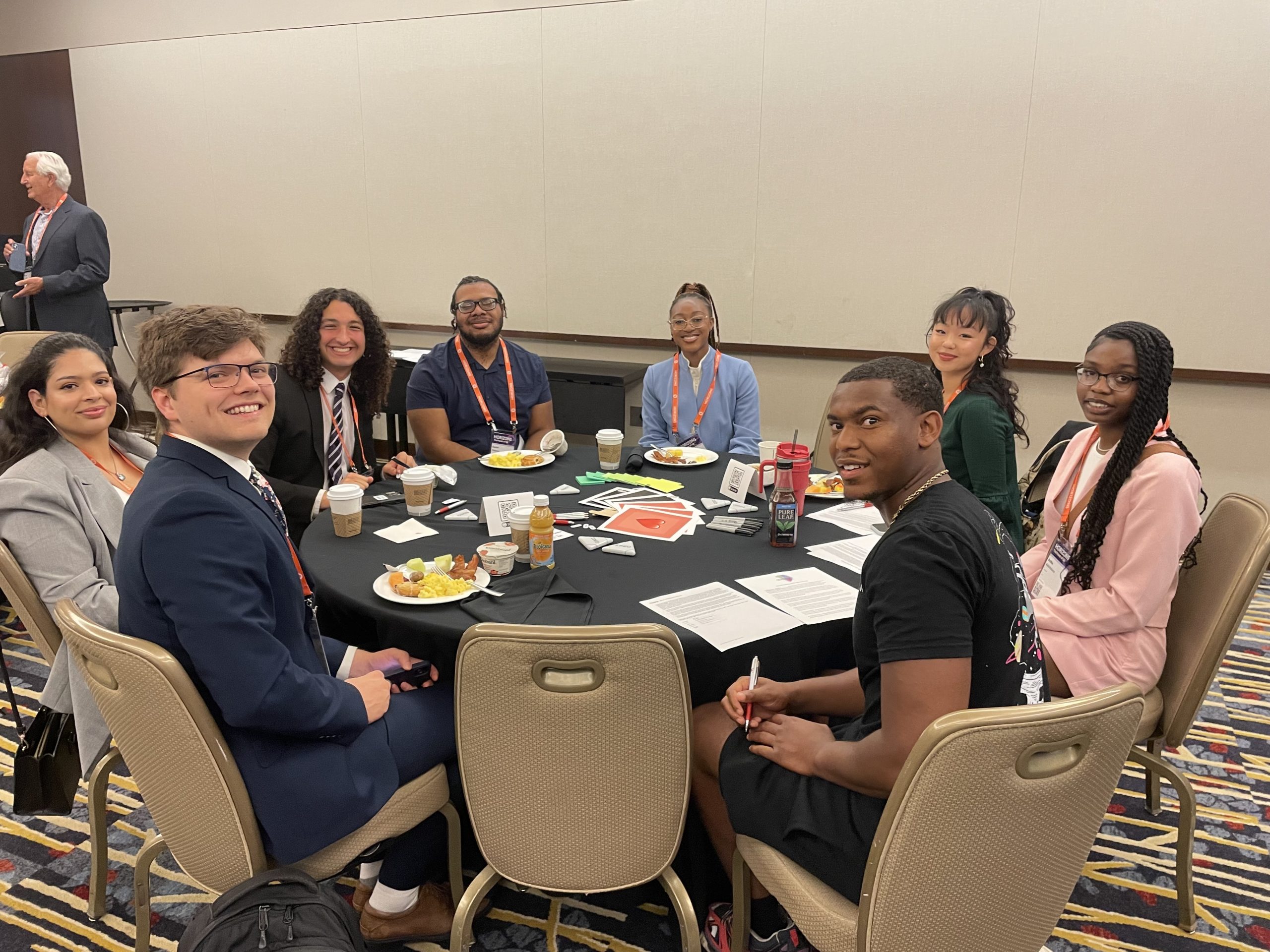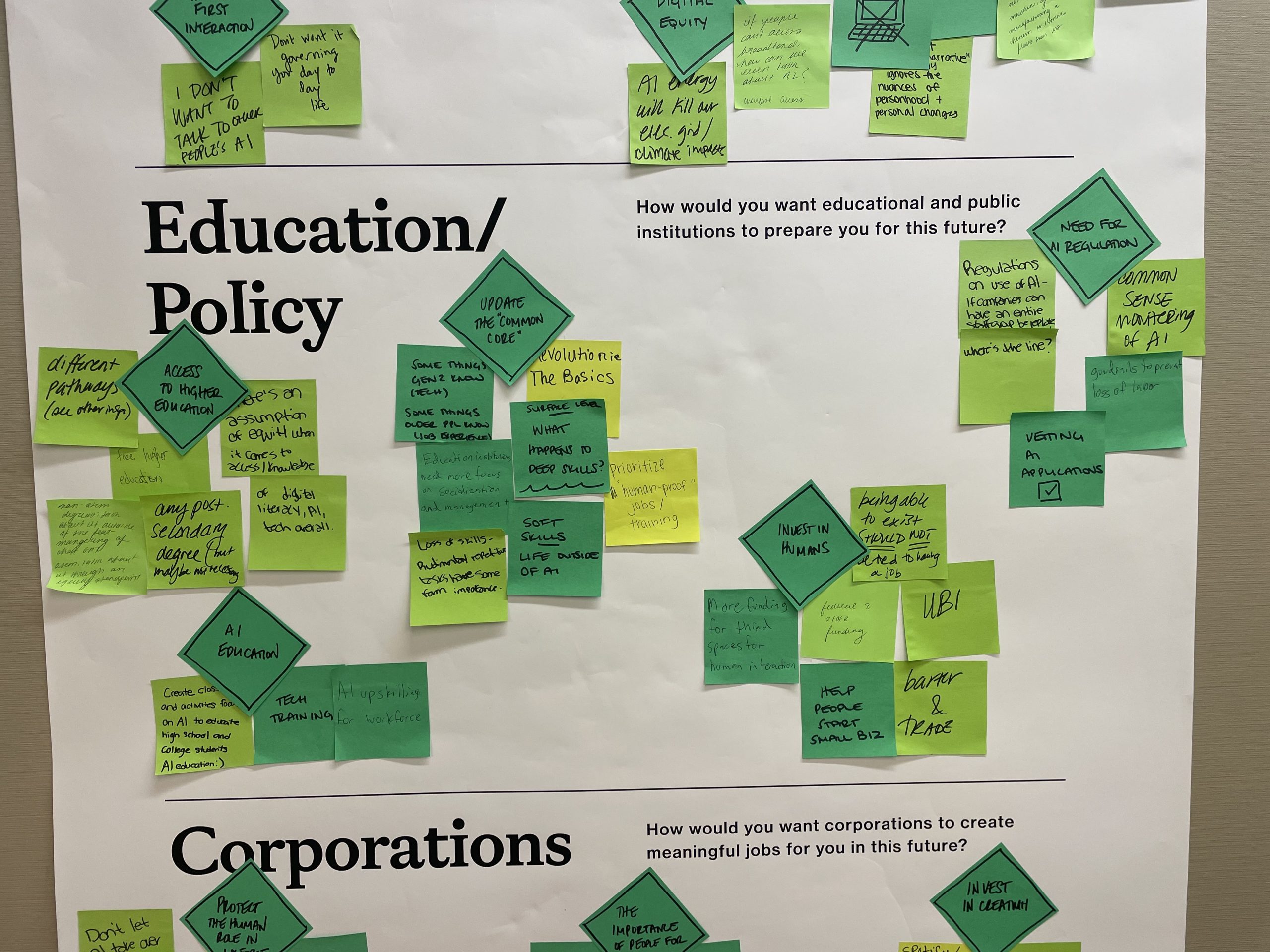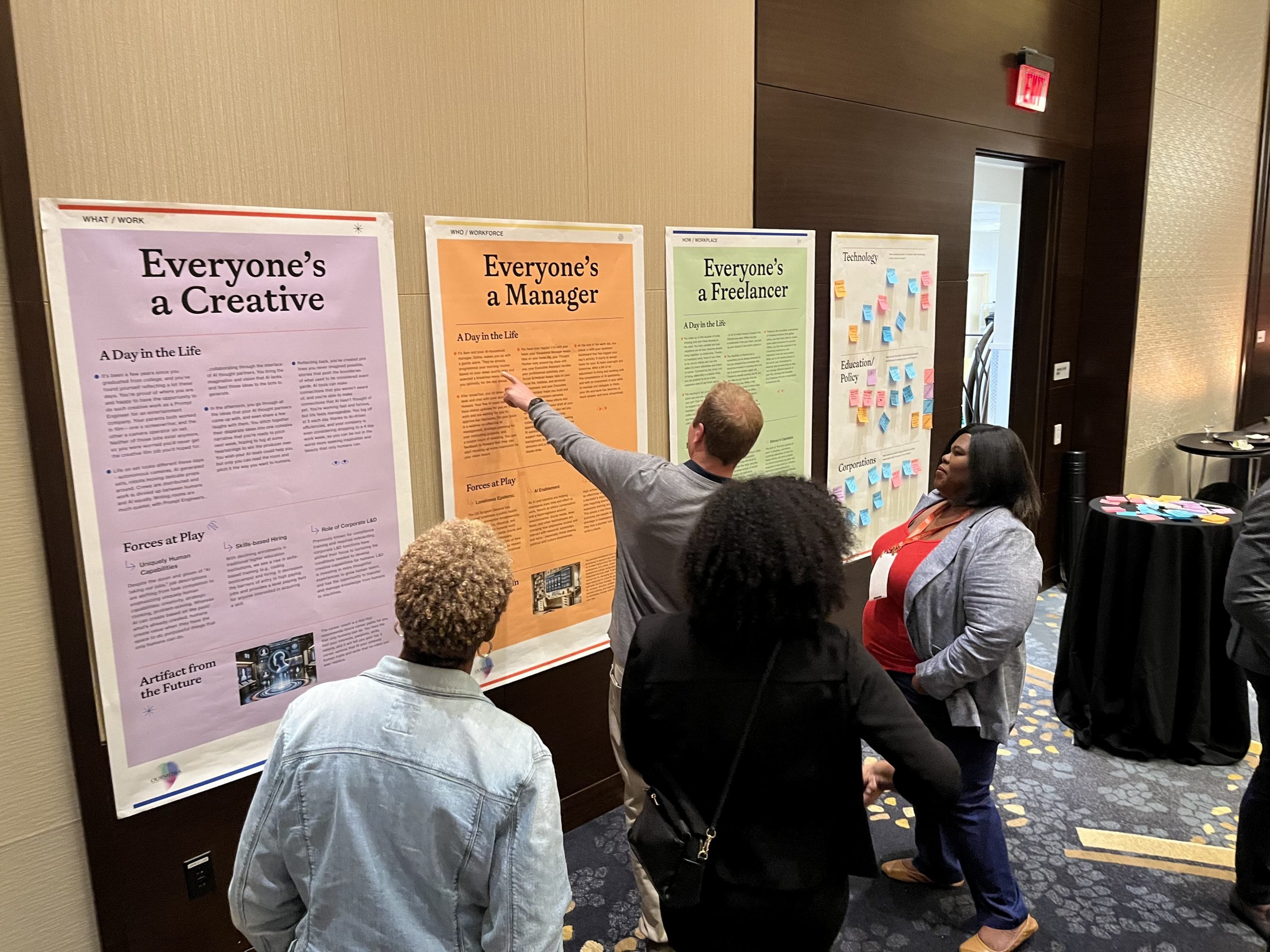
Co-Creating the Future of Work with GenZ
This report captures insights on preparing Generation Z for an AI-driven workforce. It draws from a co-creation session held at the Horizons conference, where JFF’s Gen Z Ambassadors and attendees across sectors engaged in discussions and workshops focused on the future of work.
Participants explored how AI will shape workplace dynamics, workforce readiness, and the challenges unique to Gen Z, such as maintaining human connection, addressing ethical concerns, and ensuring equitable access to AI resources. The report synthesizes Gen Z’s perspectives on balancing technological efficiency with personal agency and creativity, alongside broader reflections from non-Gen Z participants on lifelong learning, strategic AI adoption, and cross-sector collaboration.
Introduction
In an era where the rapid advancement of artificial intelligence is transforming the landscape of work and learning, there is a significant gap in understanding how these changes will impact Generation Z and how institutions should respond. At Jobs For the Future’s annual Horizons conference, Ourmedia and IDEO collaborated to surface crucial insight from JFF’s Gen Z ambassadors for the future of work and engage with the general attendee population around those insights.
Event Summary
-
Ourmedia and IDEO partnered to deliver a co-creation session on the future of work and AI for Gen Z, sparking conversations and connections among nonprofit, industry, government, and academic attendees.
-
On Horizons’ first day, we spent an hour with JFF’s Gen Z Ambassadors exploring AI’s role in shaping future workdays. The session revealed Gen Z insights on adapting to AI tools and trends and their calls to action for policymakers, corporations, and institutions to support an AI-driven future.
-
At the evening reception, we shared projections about AI’s impact on work and invited attendees to respond to key questions using color-coded post-its, highlighting sector-specific perspectives on the future of work.
- The next day, attendees explored the collected responses during a shareback session, engaging in discussions about what surprised them, inspired hope, and how their fields shaped the conversation.
GenZ Perspectives
Gen Z leaders expressed a mix of excitement about the potential for AI to streamline everyday processes, and concern for artificial intelligence diminishing their agency and ability to connect with others. A common theme that surfaced was consideration of the aspects of daily life that were quintessentially human and needed to be preserved as AI continues to advance.
Key Takeaways:
Expressed the need for learning to work on teams, and having access to skills training, career development support, and mentorship opportunities early in their career
Noted the importance of having conversations about access and equity around AI early on
Emphasized the importance of maintaining human connection and agency over innovation
Shared a concern about AI diminishing their agency or ability to think for themselves, and expressed a desire for a life that is not ‘over-technologized’
Expressed excitement and optimism for the potential for AI to improve their creativity and agency in work, and lessen their daily workload to create more flexible work environments
We found that Gen Z leaders tended to consider an AI-assisted future as representing a tension between the desire for efficiency, and the need for human connection and interaction.
They expressed excitement about the potential for AI to lessen the pain points associated with a regular work day, but noted that any kind of AI-assistance needed to have hard limits on the parts of their lives it would not interfere with.
The ambassador cohort also expressed a specific interest in utilizing AI to promote creativity and collaboration.
Despite sharing excitement about AI’s ability to increase efficiency and productivity in their lives, Gen Z leaders pointed out that a future dominated by artificial intelligence, while more efficient, would minimize human interaction to degrees that may harm mental health. The leaders made specific reference to the loneliness epidemic facing Generation Z.
Non-Gen Z Perspectives
Non-Gen Z attendees shared the Gen Z leaders’ concerns about privacy and ethics, and expressed optimism for the possibility of AI streamlining processes and improving opportunities for talent development. Non-Gen Z attendees shared a desire for strategic implementation of AI, and expressed most excitement for AI’s ability to improve innovation and workforce development. These attendees also recognized the importance of encouraging lifelong learning practices and constant adaptation in the age of AI, especially coming from employers and educational institutions.
Key Takeaways:
- Shared excitement about potential for everyday processes to be streamlined and innovation to improve
- Emphasized importance of employers and institutions providing support for talent and career development alongside AI
- Expressed concern about privacy and ethical considerations around AI use
- Encouraged the development of partnerships between industry and educational institutions to align skills training with market needs
Key Recommendations
Perspectives shared by Gen Z and Non-Gen Z attendees surfaced the following key recommendations for educational institutions, employers, and policymakers:
- Bridge Generational Gaps – Leverage the strategic thinking of older generations alongside Gen Z’s insight into the unique challenges of the workforce landscape in the coming years to define solutions for the future of work
- AI-Driven Educational Reform – Advocate for reforms that support lifelong learning, personalized learning, and industry collaboration
- Corporate Responsibility and Ethics – Ensure that AI adoption aligns with broader societal values and enhances workforce well-being
- Policy Development – Encourage policies that support the ethical and inclusive use of AI in both education and the workplace, protecting privacy and promoting access to opportunities.
- Customized AI Solutions – Develop AI tools that cater to diverse user needs, from enhancing productivity and creativity to ensuring data security and ethical use.
